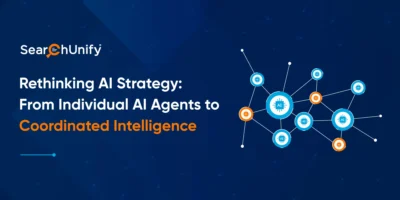
Customers aren’t concerned about the internal processes, but they do care about an instant, personalized, and proactive support experience. They expect brands to know who they are, what they need, and to offer help before they even ask. The question is: Can your current support system keep up? With AI, it can.
In this blog, we are going to discuss in detail how AI in customer service is transforming support operations. Let’s get started.
1. Deliver 24/7 Real-Time Support with AI Chatbots and Virtual Assistants
Today’s customers demand round-the-clock support that feels like a human, no matter the channel or timezone. AI chatbots and virtual assistants enable real-time conversations that are contextually aware, multilingual, and emotionally intelligent.
Instead of providing pre-defined responses, AI chatbots powered by large language models generate tailored answers based on historical data, product documentation, and past interactions. This dynamic approach allows them to adapt to each user’s unique context and intent. The result? Faster resolutions, less strain on live agents, and elevated customer satisfaction—one of the core outcomes of AI in customer service.
Business Impact:
- Reduced wait times and ticket backlog
- Consistent support experience across global time zones
- Enhanced CSAT with always-on availability
2. Automate Ticket Triage and Enable Intelligent Routing
Manual triaging often results in delays, misrouted tickets, and overwhelmed agents, ultimately affecting customer satisfaction. Traditional systems fall short in understanding the nuances of customer queries, especially when emotions or urgency come into play.
With AI in customer service, this picture has changed completely. AI models understand the intent, detect the sentiment, and gauge urgency in real-time. So, when a customer submits a query, AI instantly triages it: Is the user frustrated? Does this require a specialist? Can it be self-resolved? Based on these insights, tickets are intelligently routed to the best-suited agent or AI workflow, reducing handoffs and improving response time.
Business Impact:
- Streamlined operations with automated prioritization
- Better customer-agent fit, improving first contact resolution (FCR)
- Lower escalations and faster time to resolution
3. Empower Agents with Real-Time AI Assistance
Support agents often struggle with information overload, manual documentation, and uncertainty in tone or compliance. This not only slows down response times but also affects the consistency and quality of customer interactions.
AI in customer service empowers agents through AI-powered copilots that act as real-time assistants. They provide instant reply suggestions, auto-filled summaries, contextual knowledge base recommendations, and live coaching, giving agents the right tools to respond faster, more accurately, and with greater confidence.
Business Impact:
- Increased agent efficiency and reduced average handle time (AHT)
- Faster onboarding for new agents
- Enhanced accuracy and consistency of responses
4. Use Predictive AI to Drive Proactive Support
Traditional customer support is largely reactive; issues are addressed only after customers raise a concern. This approach often leads to delayed resolutions, growing frustration, and missed opportunities to deliver a seamless experience. When early warning signs go unnoticed, the risk of customer churn increases significantly.
AI in customer service is evolving into a proactive engine. By identifying early signs of friction through usage patterns, sentiment analysis, and support history, predictive AI empowers teams to reach out, offer timely solutions, and resolve potential issues before they escalate.
Business Impact:
- Lower inbound ticket volume
- Improved customer loyalty and retention
- Data-driven support strategy
5. Scale Operations with Continuous Learning and Automation
The true strength of AI in customer service goes beyond real-time assistance; it lies in its capacity to learn, adapt, and improve continuously. Static systems become outdated quickly, but AI evolves with every interaction and data point it processes.
By learning from resolved tickets, updated knowledge articles, and customer feedback, AI in customer service fine-tunes its performance over time. Paired with automated workflows like tagging, routing, and summarizing, it creates a self-improving support system that scales efficiently.
Business Impact:
- Lower operational costs through automation
- Reduced manual effort for repetitive tasks
- Adaptive knowledge base and smarter models over time
Conclusion: Operational Excellence Starts with AI
In 2025, AI in customer service is not just a tactical tool; it’s a strategic lever. From delivering real-time assistance to optimizing internal workflows and predicting customer needs, AI is the backbone of modern support.
For CX leaders and decision-makers, the message is clear: embracing AI in customer service isn’t optional, it’s essential. The sooner you act on these five shifts, the better prepared your enterprise will be to deliver seamless, scalable, and truly intelligent customer service.
Now is the time to reimagine support operations. Let AI lead the way.










